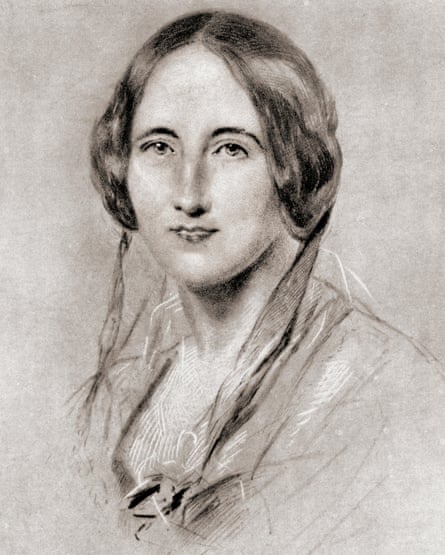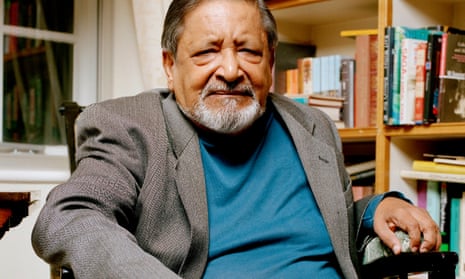As soon as the news of VS Naipaul’s death broke a few weeks ago, a thousand think pieces rose as one, as though to take his place. His legacy was both attacked and defended, his misogyny and racism condemned and forgiven. This frenzied conversation crystallised around a question readers have been grappling with for years, but with increasing urgency: to what extent should we consider an artist’s personality, politics and ethics relevant to our appreciation of their work?
It seems that almost no one can separate the writer from the books when it comes to Naipaul. The same is true of our response to work by authors who have recently been accused of various levels of misconduct following #metoo. In the past week alone, compelling and devastating reports of abuse by lauded authors have appeared in the media: Gwyn Conger Steinbeck, John Steinbeck’s second wife, detailed his sadism and womanising in a memoir that has recently come to light; author Joyce Maynard has written of her experiences with JD Salinger, who summoned her to live with him when she was 18 and he was 53.
Practical criticism – the academic approach to texts that aims to consider words on the page independently of their author or the reader’s preconceived ideas – began almost 100 years ago; now, in 2018, such “death of the author” talk appears to be dead itself. While the takes on Naipaul were diverse, and some argued that Naipaul’s bad character was irrelevant to his work, the fact of his bad character was always front and centre. It could not go unmarked– but what remains to be decided is the extent to which it marks the legacy of a Nobel prize-winning author.
I am in favour of removing monuments erected to celebrate individuals whose life work was to destroy the happiness or lives of others. I think the statue of white supremacist Cecil Rhodes at Oriel College, Oxford, belongs in a museum with a lengthy note about Rhodes’s horrific legacy and the cultural circumstances under which the statue was first erected. The same is true of the many tributes across the US to Robert E Lee. But a book is not a statue. A story is not necessarily a tribute to, or celebration of, its author. I am left reaching, instead, for the correct metaphor to evoke the relationship between work and creator. Is a book its author’s child, innocent of its parent’s wrongdoing? Or is it a hologram of its creator, representing all that its author was and did? Of course neither of these is correct; I’m still searching for an analogy that lies between these two extremes.
Naipaul, born more than 50 years before I was, is a man from a very different age, but one that nonetheless overlapped with my own. I find many of his views offensive, laughable or both; his racism and treatment of women were sickening. I could say the same, however, of Dickens, a callous womaniser who, after the Indian rebellion of 1857, declared, “I wish I were Commander in Chief in India … I should do my utmost to exterminate the Race … to blot it out of mankind and raze it off the face of the Earth.” Yet he retains his reputation as an avuncular, charming writer; a national treasure who invented Christmas as we know it. I still admire Dickens’s novels. How do I justify accepting one of these men and not the other?
Is there a historical cutoff point after which we start to object to the politics, behaviour or ethics of authors? If so, it has tended to fall sometime after Dickens’s death. Ezra Pound was a fascist, Pablo Neruda a rapist, Philip Larkin an antisemite; we are increasingly aware of these facts and the ways they affect our reading of their work. But perhaps we are now dissolving that vague historical line altogether, finding fault with the even-longer-gone. Emily Brontë was recently criticised here for having been a difficult person. Male authors are being held to account for their sexual crimes and bigotry; women, in general, for not being charming.

If Emily Brontë is now fair game, then with sadness, I have to admit that my own favourite author, the Victorian novelist Elizabeth Gaskell, should be, too. She was a social reformer in her lifetime, whose books offered such sympathetic portrayals of those condemned by Victorian society that two of her friends burned them. She cared deeply about improving the lives of those around her. And she was also a gossip and a prude. She was rude in her letters about George Eliot, whose cohabitation with the married George Henry Lewes was much talked about at the time. In 1859, when Eliot’s identity as the author of Adam Bede and Scenes from Clerical Life was revealed, Gaskell wrote to Eliot to express her admiration, but could not hide her disapproval even in what was essentially a fan letter. “I should not be quite true in my ending, if I did not say before I concluded that I wish you were Mrs Lewes,” she wrote. Mrs Gaskell made no attempt to separate her response to Eliot’s books from her response to Eliot’s perceived wrongdoings.
In my reading of Mrs Gaskell, and my writing about her in my book Mrs Gaskell and Me, I have wholeheartedly embraced the inseparability of her life and work. While I admire her novels, it was when I read her correspondence that I became fascinated by her. Her letters are gossipy and witty, busy and enthusiastic about pleasure; I love the way they lay her faults and foibles bare. Before I had read them, I thought of her merely as just another Victorian writer whose novels I enjoyed. Afterwards, she became a distinct and beloved character in my imagination. My interest in her is fuelled as much by her personality (if not more) than her creative outputs. I feel so close to Mrs Gaskell that I think of her, now, as a kind of friend.
So to consider the author as relevant and as worthy a subject as her novels means I cannot ignore the fact that she would have despised me and the kind of life I lead, one far more scandalous by Victorian standards than anything Eliot achieved. An audience member at a reading of my book recently asked me what Gaskell would have thought of #MeToo; I dodged the question entirely, because the answer could not be that she would have supported it, certainly not without much equivocation and discomfort. In many ways, it is an unfair exercise: dragging Mrs Gaskell out of her time and asking her to pass comment on our own.
I have more questions than answers about all of this. All I can offer is what I have learned from carrying my own warped, subjective version of Mrs Gaskell in my head. It seems to me that we should begin by treating the authors we admire as we would treat people in our lives: that is, on a case by case basis, weighing their good points against their bad, taking into account extenuating circumstances and aggravating factors. The life of the author is never truly irrelevant – but if we accept that, we must also accept the weirdness, discomfort and complexities that follow.
